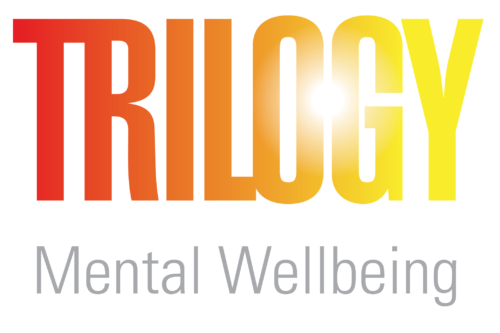Who Will Be Hurt by Medicaid Cuts? Everyone.
May 13, 2025

As the debate around cuts to Medicaid evolves by the minute, let’s remember that any cuts that limit access to care will be devastating to millions of people who need care most. Keep advocating! In the spirit of this work, I’m sharing this article below.
Who Will Be Hurt by Medicaid Cuts? Everyone.
Four Ways Medicaid Cuts Will Backfire.
By Susan Doig, LCSW, LPHA, CADC
Recently, we’ve seen numerous attacks on our social safety net, including the looming threat of Medicaid cuts. These cuts would erode a critical resource that millions depend on for their healthcare. While those most impacted would be our community’s most vulnerable — including people with serious mental illness, disabilities, and seniors — cuts will hurt all of us.
Medicaid is lifeline and keeps people off the streets, out of ERs and jails. Tens of millions depend on the program, including more than 3M in Illinois. Many live with serious mental illness. Cuts will put millions in jeopardy and have a negative impact on every district in Illinois. Here’s what’s at stake if Medicaid is cut:
Homelessness will increase. Housing is healthcare. Medicaid funds many of the services that support people with disabilities to stay housed. People in recovery often need ongoing supports to remain stable once they have a roof over their head. 1 Reducing Medicaid funding will jeopardize all of these elements in this fragile ecosystem, causing more individuals to become homeless.
Hospitals, jails, prisons and nursing homes will be overcrowded. Some facilities will close.
Preventive care saves lives. It also cuts costs. Medicaid cuts would impede timely access to preventive care and medications people need to stay well. This means more preventable hospitalizations and more ER visits. In other states, Medicaid cuts triggered a 20% spike in ER visits, resulting in longer wait times for everyone.2 In turn, institutional costs increase for hospitals, nursing homes and jails.
It’s also been shown that Medicaid reduces recidivism, and that people released from jails who get access to the program are less likely to be re-incarcerated. 3 Losing Medicaid, on the other hand, increases incarceration.4,5 Cuts to Medicaid will also force more people into nursing homes while at the same time increasing financial strain on these institutions, forcing many to reduce capacity or close entirely. 6,7 More and more people will crowd these institutions, competing for an ever-dwindling supply of beds.
Crime will increase. States that expanded Medicaid saw a 6% drop in violent crime and a 3% drop in property crime, according to Brookings. 8 It has also been proven that access to Medicaid reduces arrests, particularly drug-related arrests. Why? Having access to care incentivizes people to seek treatment for substance-use issues. 13 Stripping these resources criminalizes substance use issues. Providing treatment to those with substance use issues is flat-out more cost-effective than incarceration.
First Responders will be burdened with more mental health calls. When someone is experiencing a mental health crisis, they need mental health treatment. People with serious mental illness are more likely to come into contact with police when no alternatives are available.⁹ One in four police interactions involve people in mental health crises, and Medicaid cuts will increase this number.¹¹
Communities that have invested in 24/7 mental health crisis intervention have seen real benefits. Trilogy’s Mobile Crisis Response team responded to 4,000 calls last year, and 95% of these calls were resolved without police or “flashing lights” on scene.¹⁰ This is important for many reasons, but notably, it saves police time and is more cost-effective than a police or EMT response.
While mobile crisis teams may not receive direct funding from Medicaid, they are often integrated within community mental health organizations that rely heavily on Medicaid. Cuts to Medicaid will weaken the infrastructure supporting these teams and reduce their effectiveness. And when officers spend more time responding to mental health crises, they spend less time preventing crime.
Cutting Medicaid Will Cost Us More
Investing in Medicaid SAVES money. Every $1 spent on Medicaid for inmates exiting prison saves $3 -$10 elsewhere, and short-sighted cuts will cost Illinois taxpayers and systems more12 . Medicaid cuts at ANY level put vulnerable community members at risk. With MORE uninsured Illinoisans, state and local budgets will face higher healthcare costs, poorer public health, and greater economic instability.
Needs in our community for mental and behavioral healthcare are skyrocketing. That’s why Trilogy is expanding to reach more people across Chicago, including our new site on the Northwest side and our South Side Wellness Center that will be opening fully soon. Now is NOT the time to cut services. Now is the time to make your voice heard. Contact your elected officials and tell them that Medicaid cuts will hurt all of us!
How you can help: Contact your representative today – there’s no time to wait!
You can find your elected representatives at elections.il.gov
or call the Hands Off Medicaid Hotline at 866-426-2631 to be connected to your representatives.
Below are suggested talking points that you can use to advocate:
Hello, my name is (_____) and I live in (______). I am calling you today as a constituent to let you know that I’m deeply concerned about cuts to Medicaid and other essential programs. Medicaid is a lifeline and keeps people off the streets, out of ERs and jails. Cuts will put millions in jeopardy and have a negative impact on every district in Illinois. Please vote NO on ALL Medicaid cuts in the reconciliation bill to protect your constituents.
References:
- https://endhomelessness.org/blog/cutting-funding-for-medicaid-will-increase-homelessness
- https://pubmed.ncbi.nlm.nih.gov/18420305/
- https://pmc.ncbi.nlm.nih.gov/articles/PMC8441351/
- www.nber.org/system/files/working_papers/w32227/w32227.pdf
- https://www.vera.org/news/trumps-medicaid-cuts-would-be-a-disaster-for-crime-and-safety#:~:text=Medicaid%20expansions%20also%20reduce%20the,through%20Medicaid%2C%20crime%20rates%20climb.
- https://www.thetelegraph.com/news/article/budzinski-medicaid-cuts-roundtable-alton-illinois-20233683.php
- https://pmc.ncbi.nlm.nih.gov/articles/PMC2699923/
- https://www.brookings.edu/articles/new-evidence-that-access-to-health-care-reduces-crime/
- https://www.nimh.nih.gov/health/statistics/mental-illness?utm_source=chatgpt.com
- Trilogy’s FACT/Mobile Crisis Unit field data
- https://www.nami.org/Advocacy/Policy-Practice/Advocacy-Updates/2020/Policing-and-Mental-Health
- https://onlinelibrary.wiley.com/doi/10.1002/hec.4876
- https://pmc.ncbi.nlm.nih.gov/articles/PMC8754343/
